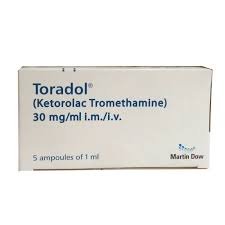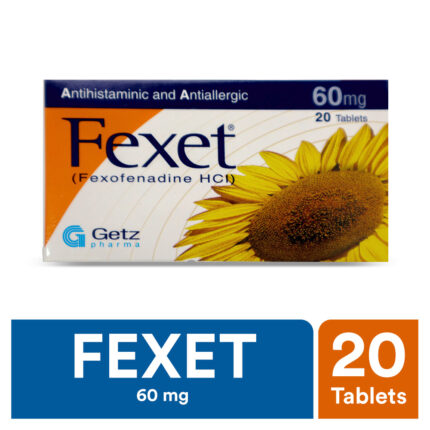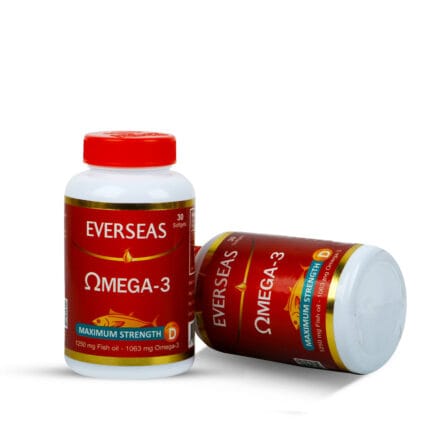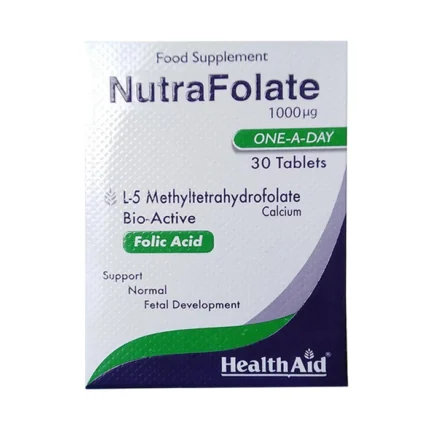Description
Ketorolac Tromethamine Injection is a nonsteroidal anti-inflammatory drug (NSAID) used for the short-term management of moderate to severe pain, typically following surgery or injury. It works by inhibiting the production of prostaglandins, chemicals in the body that cause inflammation and pain. Ketorolac is often used for its analgesic (pain-relieving) properties and is usually administered in a hospital setting or under the supervision of a healthcare provider. It is not intended for long-term use due to potential side effects like gastrointestinal bleeding, renal impairment, and cardiovascular issues. This medication is typically used for short-term, acute pain management, and it should be administered according to the prescribed dose and frequency to minimize risks.
Ingredients
Ketorolac Tromethamine
Drug Class
NSAID
Dosage Form
injection
Uses
Following are the uses of Ketorolac Tromethamine Injection:
- Used for the short-term management of moderate to severe pain, particularly after surgery or injury.
- Provides effective pain relief for conditions such as musculoskeletal pain, postoperative pain, and renal colic.
- Often used in hospital settings to manage acute pain in patients who require opioid-sparing treatments.
- Can be used to reduce pain and inflammation after dental procedures or other minor surgeries.
- Employed as an adjunct to other analgesics to enhance pain control in postoperative patients.
- Suitable for short-term use in individuals who require a non-opioid alternative for severe pain relief.
- Helps manage pain by inhibiting the production of prostaglandins, reducing inflammation, swelling, and pain.
Dosage
Dosage of Ketorolac Tromethamine Injection:
- For adults, the typical dose is 30 mg as a single injection, administered every 6 hours, with a maximum dose of 120 mg per day.
- For pediatric patients aged 2 years and older, the usual dose is 0.5 mg/kg as a single injection every 6 hours, not to exceed 30 mg per dose.
- Ketorolac is usually administered by a healthcare professional through intramuscular (IM) or intravenous (IV) injection.
- It is recommended for short-term use (up to 5 days) to manage acute pain.
- The dosage may be adjusted based on the patient’s medical condition, age, and response to treatment.
- If you miss a dose, do not double the dose; consult your healthcare provider for proper guidance.
In case of Overdose
In case of an overdose of Ketorolac Tromethamine Injection, it is crucial to seek immediate medical attention. Overdose symptoms may include severe gastrointestinal bleeding, kidney dysfunction, confusion, drowsiness, and respiratory depression. If an overdose is suspected, contact a poison control center or go to the nearest emergency room immediately. Treatment will focus on managing symptoms and may involve supportive care, such as intravenous fluids to maintain hydration, monitoring of vital signs, and possibly the use of medications to counteract the effects of the overdose. Activated charcoal may be administered in some cases to reduce absorption if the overdose occurred recently. Medical professionals will closely monitor kidney function and other vital parameters to prevent further complications.
Missed Dose
In case of a missed dose of Ketorolac Tromethamine Injection, it is important to contact your healthcare provider or medical team for guidance. Since Ketorolac is typically administered in a healthcare setting, a missed dose is rare. However, if an injection is missed during treatment, your healthcare provider will determine whether an additional dose is necessary or if the next scheduled dose should be administered. Do not attempt to administer an extra dose on your own. It is important to follow the healthcare provider’s instructions to avoid any potential complications, such as overdose or side effects. Always stick to the prescribed dosage and timing to ensure effective and safe use of the medication.
How To Use
Typically, this medication is administered as an injection by a healthcare professional into a muscle or vein, depending on your condition and prescribed treatment plan. The dosage and frequency will be determined by your doctor based on your level of pain and overall health. Do not attempt to self-administer unless specifically trained and instructed to do so. It is important to use this medication only for the prescribed duration, as prolonged use may increase the risk of side effects.
When Not to Use
When not to use Ketorolac Tromethamine Injection:
- If you are allergic to ketorolac, other NSAIDs, or any of the ingredients in the formulation.
- In patients with a history of gastrointestinal bleeding, peptic ulcers, or active gastrointestinal disorders, as ketorolac can worsen these conditions.
- If you have severe renal impairment or a history of kidney problems, as ketorolac may further impair kidney function.
- Avoid use in individuals with a history of cardiovascular disease, such as heart failure or stroke, due to the increased risk of cardiovascular events.
- Do not use in patients with active bleeding disorders, including hemorrhagic disorders or those at risk for bleeding, as ketorolac can increase the risk of bleeding.
- If you are pregnant, especially in the third trimester, or breastfeeding, consult your healthcare provider, as the safety of ketorolac during pregnancy and lactation has not been established.
- Avoid using ketorolac with other NSAIDs or anticoagulant medications unless specifically directed by your healthcare provider.
- Do not use in children under the age of 2 years or for prolonged periods in pediatric patients without medical supervision.
Side Effects
Side effects of Ketorolac Tromethamine Injection include:
- Bleeding
- Dizziness
- Nausea
- Vomiting
- Headache
- Rash
- Fatigue
- Edema
- Diarrhea
- Abdominal pain
- Hypertension
- Renal failure
Precautions & Warnings
Precautions and Warnings for Ketorolac Tromethamine Injection include:
- Use with caution if you have a history of gastrointestinal problems, such as ulcers, bleeding, or perforation, as ketorolac may worsen these conditions.
- Do not exceed the recommended dose or duration of treatment, as overuse can increase the risk of serious side effects like gastrointestinal bleeding, renal impairment, and cardiovascular events.
- If you have a history of kidney or liver problems, consult your healthcare provider, as ketorolac may worsen these conditions.
- Use cautiously in individuals with cardiovascular disease, as ketorolac may increase the risk of heart attack, stroke, or hypertension.
- Avoid using ketorolac in pregnant women, especially during the third trimester, as it may harm the fetus. Consult your healthcare provider if you are pregnant or breastfeeding.
- Ketorolac should not be used concurrently with other NSAIDs or anticoagulants, unless advised by your healthcare provider.
- Keep out of reach of children to prevent accidental overdose.
- If you experience any signs of an allergic reaction, such as rash, swelling, or difficulty breathing, discontinue use and seek immediate medical attention.
Drug Interactions
Drug interactions for Ketorolac Tromethamine Injection include:
- May interact with other nonsteroidal anti-inflammatory drugs (NSAIDs), increasing the risk of gastrointestinal bleeding or ulcers.
- Use with caution if taking anticoagulants (e.g., warfarin) or antiplatelet drugs (e.g., aspirin), as it may increase the risk of bleeding.
- Combining ketorolac with corticosteroids can enhance the risk of gastrointestinal issues, such as ulcers or bleeding.
- May interact with diuretics, potentially decreasing their effectiveness and increasing the risk of kidney problems.
- The use of ketorolac with other nephrotoxic drugs (e.g., ACE inhibitors, angiotensin II receptor antagonists) may increase the risk of kidney damage.
- Should not be used concurrently with selective serotonin reuptake inhibitors (SSRIs) or serotonin-norepinephrine reuptake inhibitors (SNRIs) due to an increased risk of bleeding.
- Use caution when combined with lithium, as ketorolac may enhance the risk of lithium toxicity.
- Avoid using ketorolac with alcohol, as it may increase the risk of gastrointestinal bleeding or liver damage.
Food Interactions
Food interactions for Ketorolac Tromethamine Injection include:
- Alcohol
- Food
- Dairy
- Grapefruit
- Caffeine
Storage/Disposal
Ketorolac Tromethamine Injection should be stored in a controlled environment, away from light and moisture. It should be kept at room temperature, typically between 20°C to 25°C (68°F to 77°F). The vial should remain tightly closed when not in use to prevent contamination. Do not freeze the medication. After use, any remaining portion of the vial should be disposed of properly. Unused or expired injections should not be thrown in regular trash or flushed down the toilet. Instead, dispose of them through a local drug take-back program or as directed by a healthcare provider or pharmacist to ensure safe and environmentally responsible disposal. Always keep medications out of reach of children.


Get Your Healthcare Delivered Nationwide!
No matter where you reside in Pakistan, medlife.pk brings your healthcare essentials straight to your doorstep! We partner with trusted shipping companies like TCS, M&P, LEOPARD Courier, Trax, and Call Courier for nationwide delivery.
For ultimate convenience, enjoy Cash on Delivery (COD) with a flat rate of Rs.299 across Pakistan. Prefer to pay upfront? Orders over Rs.3,000 receive free shipping when you pay with Bank Transfer, JazzCash, Easypaisa, or Credit/Debit Card. And the perks don't stop there! Orders exceeding Rs.5,000 with advance payment not only get free shipping, but also earn you a discount coupon for your next medlife.pk purchase.
Rest assured, our team meticulously packs and ships your order for safe arrival, ensuring you receive the genuine products you deserve. So, browse our selection, choose your payment method, and get ready to experience the medlife.pk difference! Happy shopping!





















Reviews
There are no reviews yet.